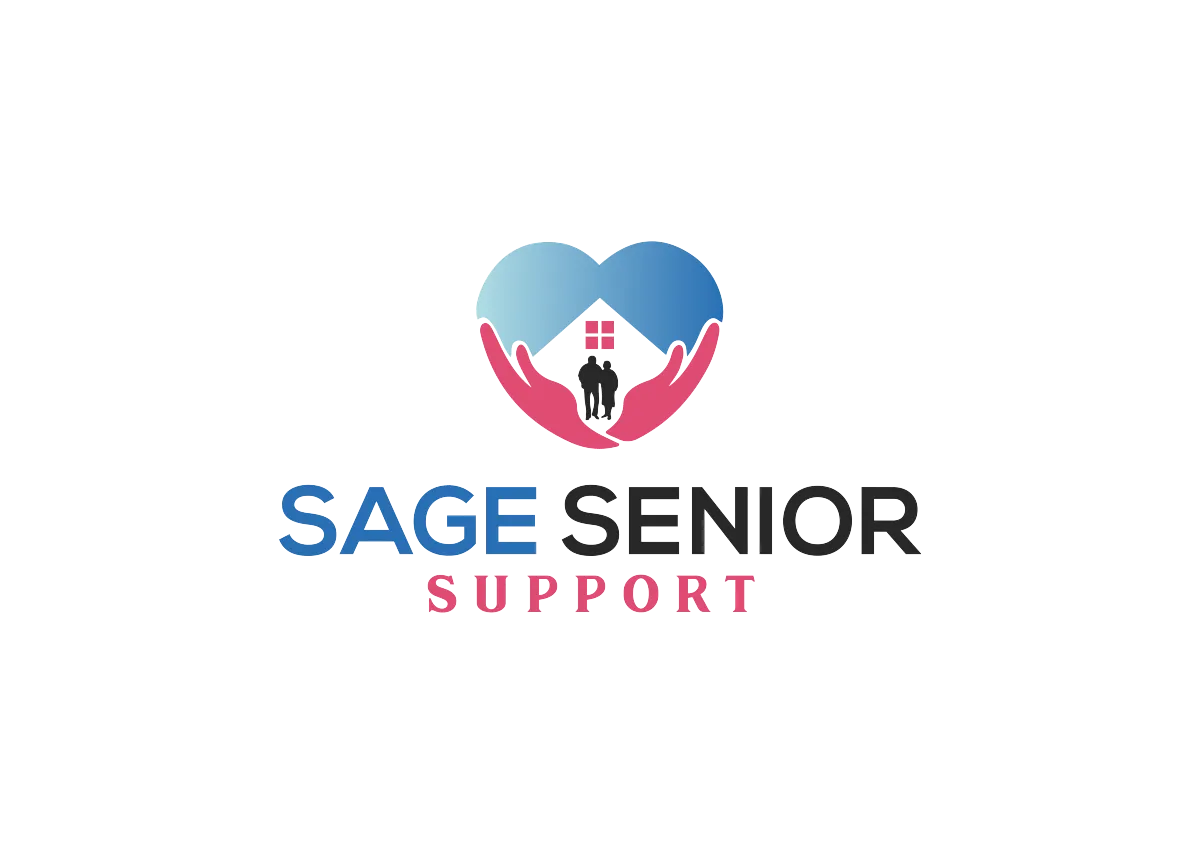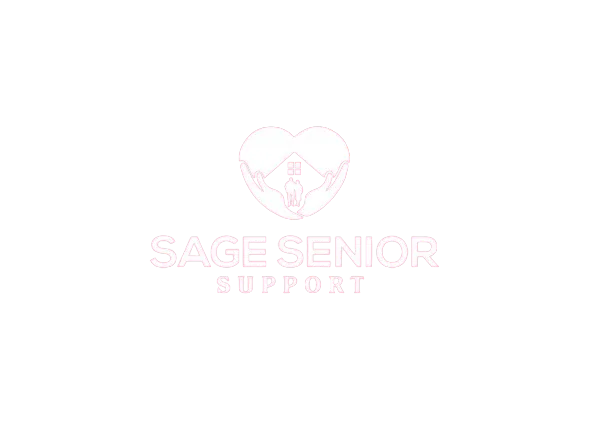
What DFW Families Should Know About Reverse Mortgages and Aging in Place
DFW homeowners aged 62+ can access their home equity through reverse mortgages while staying in their homes, without monthly mortgage payments. While this can fund aging-in-place modifications and care, it requires careful consideration as the loan balance grows over time, impacting inheritance plans.
Key Takeaways
Reverse mortgages allow DFW homeowners aged 62+ to tap into their home equity while continuing to live in their homes without making monthly mortgage payments.
While using a reverse mortgage, homeowners must still pay property taxes, homeowners insurance, and maintain their property to avoid defaulting on the loan.
The loan balance grows over time as interest accrues, potentially impacting inheritance plans for your family.
Reverse mortgages can fund home modifications and care services that make aging in place possible for Dallas-Fort Worth seniors.
Mandatory HUD-approved counseling ensures you fully understand the implications before committing to a reverse mortgage.
Reverse Mortgages Unlock Home Equity Without Moving
For many Dallas-Fort Worth seniors, their home represents their largest asset. A reverse mortgage offers a way to access that wealth without selling or moving. Unlike traditional mortgages where you make monthly payments to a lender, a reverse mortgage allows homeowners aged 62 and older to convert part of their home equity into cash with no monthly mortgage payments required.
Many DFW residents find these financial tools helpful when planning for retirement and aging in place. Sage Senior Support provides a comprehensive free guide to help families understand how reverse mortgages can fund aging in place strategies while addressing the unique considerations of the North Texas housing market.
The ability to stay in your familiar neighborhood, near friends, family, and established medical care benefits many seniors in the metroplex. With the rising cost of living in popular DFW communities like Plano, Frisco, and Southlake, a reverse mortgage can provide financial breathing room.
Qualifying for a Reverse Mortgage in DFW
Age and ownership requirements
To qualify for a reverse mortgage in the Dallas-Fort Worth area, all borrowers listed on the home's title must be at least 62 years old. You must own your home outright or have a low mortgage balance that can be paid off with the reverse mortgage proceeds. The home must be your primary residence where you live for the majority of the year.
Property conditions that affect eligibility
Your DFW property must meet certain standards to qualify. Single-family homes are most common, but some condominiums, townhouses, and manufactured homes may also be eligible if they meet FHA requirements. The property must be in good condition, as lenders will conduct an appraisal to determine its value and suitability for a reverse mortgage.
In the diverse Dallas-Fort Worth housing market, home values vary significantly from neighborhoods in Oak Cliff to Keller to Las Colinas. This affects how much equity you can access through a reverse mortgage, with higher-value homes potentially qualifying for larger loan amounts.
Mandatory HUD counseling process
Before applying for a reverse mortgage, you'll need to complete a counseling session with a HUD-approved counselor. This requirement ensures you fully understand the responsibilities, costs, and alternatives to a reverse mortgage. During this session, the counselor will explain how the loan works, discuss your specific financial situation, and help you determine if a reverse mortgage is the right choice for your circumstances.
Financial Implications for DFW Homeowners
Upfront costs in today's Texas market
Reverse mortgages come with several upfront costs that DFW homeowners should carefully consider. These typically include an origination fee (ranging from $2,500 to $6,000, depending on your home's value), an upfront mortgage insurance premium (currently 2% of your home's appraised value), and standard closing costs similar to those in a traditional mortgage.
In the current Dallas-Fort Worth market, where home values have gone up significantly in recent years, these combined costs can add up to $10,000 or more on a median-priced home. These costs are typically rolled into the loan balance rather than paid out-of-pocket. While this means no immediate cash outlay, it does reduce the amount of equity available to you from day one.
How interest compounds over time
One of the most important aspects of a reverse mortgage to understand is how interest compounds. Unlike a traditional mortgage where your balance decreases with each payment, a reverse mortgage balance grows over time as interest accrues on both the amount borrowed and the accumulated interest.
For example, a $200,000 reverse mortgage with a 5% interest rate would grow to approximately $255,000 after five years and $325,000 after ten years, assuming no additional draws. This compounding effect is particularly significant for DFW homeowners who may live in their homes for many years after taking out the loan.
The good news is that reverse mortgages are non-recourse loans, meaning you or your heirs will never owe more than the home is worth when the loan becomes due, regardless of how much interest accumulates.
Impact on inheritance and family wealth
Many Dallas-Fort Worth families consider their home a legacy to pass down to children or grandchildren. A reverse mortgage will reduce the equity available to heirs when the home is eventually sold. This is an important consideration in neighborhoods like Preston Hollow or Colleyville where property values have historically gone up well.
When planning your estate, it's important to discuss these implications with your family. Some DFW families decide that the benefits of a reverse mortgage for the homeowner's quality of life outweigh the reduced inheritance, while others may examine alternative options to preserve home equity.
Funding Your Aging in Place Strategy
1. Home accessibility modifications
Many DFW seniors use reverse mortgage funds to modify their homes for better accessibility as they age. Common projects include installing wheelchair ramps, widening doorways, adding grab bars in bathrooms, and creating first-floor master suites. These modifications can cost anywhere from a few thousand to tens of thousands of dollars, but they can make the difference between staying in your home or having to move to an assisted living facility.
With Texas's hot summers, HVAC upgrades are another popular modification, ensuring comfortable temperatures while managing utility costs.
2. In-home caregiving services
The average cost of in-home care in the Dallas-Fort Worth area ranges from $20 to $30 per hour. For seniors who need assistance with daily activities but don't require full-time care, reverse mortgage proceeds can help cover these expenses, allowing them to remain in their homes longer.
Many DFW families find that combining family caregiving with professional support creates an ideal balance, and reverse mortgage funds can make this arrangement financially feasible.
3. Healthcare expenses not covered by Medicare
Medicare doesn't cover all healthcare expenses, particularly long-term care. Reverse mortgage funds can help bridge these gaps, paying for services like dental work, hearing aids, or prescription medications that might otherwise strain a fixed income.
For North Texas seniors managing chronic conditions, these supplemental funds can significantly enhance quality of life and health outcomes.
4. Daily living and transportation needs
As driving becomes more difficult, transportation costs can increase. Reverse mortgage funds can pay for ride-sharing services, grocery delivery, meal preparation services, and other daily needs that help seniors maintain independence in their DFW homes.
Given the widespread nature of the metroplex and limited public transportation in many suburbs, these services are particularly valuable for aging in place in communities like Grapevine, Richardson, or North Dallas.
5. Emergency funds for unexpected costs
Home repairs and unexpected medical bills can quickly deplete savings. A reverse mortgage line of credit can serve as an emergency fund, providing peace of mind that resources are available when unexpected expenses arise.
This becomes especially important in older neighborhoods throughout DFW where homes may require more maintenance or sudden repairs due to weather events like hailstorms or the region's notorious summer heat.
Protecting Your Family's Financial Future
What happens when you move or pass away
When a reverse mortgage borrower permanently moves out of the home or passes away, the loan becomes due. At this point, you or your heirs have several options for repayment. The most common approach is to sell the home and use the proceeds to pay off the loan. If the home sells for more than the loan balance, the excess goes to you or your estate.
In the DFW area, with its generally strong real estate market, many homes have gained value significantly over the years, potentially leaving some equity even after a reverse mortgage is repaid. This is especially true in growing areas like Prosper, Celina, and parts of Fort Worth where property values have seen substantial increases.
Options for heirs when the loan becomes due
When heirs inherit a home with a reverse mortgage, they generally have 30 days to decide what to do with the property, with extensions available up to 12 months. Their options include:
Selling the home to repay the loan
Keeping the home by paying off the loan balance or 95% of the appraised value, whichever is less
Deed the home to the lender (deed in lieu of foreclosure)
Many DFW families find it valuable to discuss these options before the loan becomes due, ensuring everyone understands what will happen when the time comes. Clear communication prevents surprises and helps heirs prepare financially if they wish to keep the family home.
Tax considerations for DFW residents
The funds received from a reverse mortgage are not considered taxable income but rather loan advances. This means they typically don't affect your income tax situation or Social Security benefits. However, if you receive funds as a lump sum and hold them in an account that generates interest, that interest could be taxable.
Texas has no state income tax, which simplifies tax considerations for DFW seniors. Additionally, Texas offers generous homestead exemptions that can reduce property tax burdens, which you'll need to continue paying with a reverse mortgage. Many DFW counties offer additional exemptions for seniors aged 65 and older, potentially saving thousands in property taxes annually.
How Medicaid eligibility may be affected
For DFW seniors who receive or may need Medicaid benefits in the future, reverse mortgage proceeds require careful management. Medicaid has asset limits, and while your primary residence is typically exempt, cash from a reverse mortgage that sits in your bank account counts toward these limits.
Working with a financial advisor who understands both reverse mortgages and Medicaid planning is essential for seniors who want to preserve their eligibility for these benefits while accessing their home equity. This becomes particularly important if nursing home care might be needed in the future.
Alternative Options for DFW Seniors
Home equity loans vs. reverse mortgages
A traditional home equity loan or line of credit is an alternative to a reverse mortgage that may be better for some DFW homeowners. These options typically have lower closing costs but require monthly payments. If you have a reliable income source and good credit, these traditional borrowing methods might offer better terms.
Unlike reverse mortgages, traditional home equity products aren't age-restricted and may be suitable for homeowners under 62 who need to access equity for aging-in-place modifications. With the competitive banking market in DFW, shopping around for the best rates can yield significant savings.
Downsizing within the DFW metroplex
The Dallas-Fort Worth area offers diverse housing options that might allow you to sell your current home and purchase a more affordable, accessible property outright. Many seniors find that moving from larger suburban homes to smaller properties in active adult communities or urban condos provides both financial benefits and lifestyle advantages.
Popular areas for downsizing seniors include communities in Frisco, Flower Mound, and Arlington, where new developments often include age-targeted housing with accessibility features already built in. The growing number of 55+ communities throughout North Texas provides options at various price points.
Texas-specific senior assistance programs
Before committing to a reverse mortgage, DFW seniors should check other assistance programs available in Texas. These include:
The Texas Homeowner Assistance Fund, which provides help with property taxes
Utility assistance programs through the Texas Department of Housing and Community Affairs
Local property tax exemptions for seniors and disabled individuals
Home repair and modification programs through North Central Texas Area Agency on Aging
These programs may provide some of the financial relief you're seeking without the long-term implications of a reverse mortgage.
Is a Reverse Mortgage Right for Your Aging Plan?
Deciding whether a reverse mortgage makes sense for your situation requires careful consideration of your financial needs, your plans for aging in place, and your desire to leave an inheritance. For some DFW seniors, the ability to remain in their beloved homes while accessing equity for living expenses or home modifications makes a reverse mortgage an attractive option.
For others, alternatives like downsizing or traditional loans may better align with their goals. The key is making an informed decision based on your unique circumstances, preferably with input from financial advisors, family members, and housing counselors.
No matter which path you choose, planning for how you'll age in place is an essential step for DFW seniors who want to maintain independence and quality of life in their later years. By understanding all your options, including reverse mortgages, you can create a strategy that supports your vision for the future in the Dallas-Fort Worth metroplex.
Sage Senior Support offers comprehensive guidance to DFW families handling the complexities of reverse mortgages and other aging in place financial strategies.


